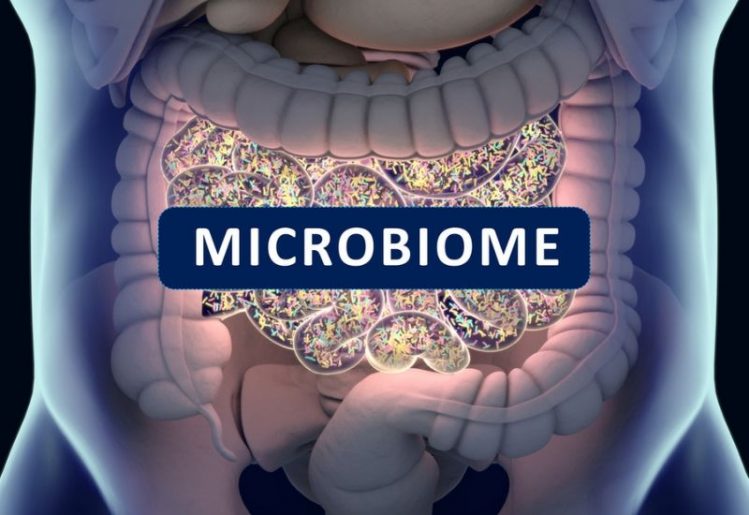Supplementing with omega-3 fatty acids is one of the most salient health trends of the past decade. Physicians are increasingly recommending these oily supplements for a variety of purposes, from helping to maintain healthy cholesterol levels within normal ranges to combating the physical effects of aging. But when is the best time to take omega-3 supplements?
Most people who take these supplements believe that they can be taken at any time of day without a dramatic difference in effect. A new study suggests that this may not be the case. Could the time of day that you take your omega-3 supplement make a dramatic difference in its effects?
Benefits of Omega-3 Fatty Acid Supplements
 It is almost impossible to read the latest health news without learning about the benefits of omega-3 fatty acids. These oils, which are found naturally in fish, flaxseed and a variety of other sources, have been found in studies to have a variety of health benefits. These include:
It is almost impossible to read the latest health news without learning about the benefits of omega-3 fatty acids. These oils, which are found naturally in fish, flaxseed and a variety of other sources, have been found in studies to have a variety of health benefits. These include:
• reducing the chances of having a heart attack or other life-threatening cardiac event
• protecting cellular health, particularly in the breasts, lungs, colon and prostate
• helping to maintain healthy levels of cholesterol and other blood lipids that increase cardiac risk
• treating metabolic syndrome, including type 2 diabetes
• protecting against insulin resistance and helping to maintain healthy blood glucose levels
• preserving healthy vision while reducing the risk of blindness and other vision loss
• encouraging brain growth and development both in pregnancy and in the first several years of life
• protecting against inflammation, especially long-term inflammation that can lead to tissue damage
• promoting optimal mental health and mood and soothing anxiety
• reducing the effects of ADHD in children and adults with this disorder
• offering benefits in cases of Alzheimer’s disease and other types of dementia
It is clear that taking an omega-3 supplement can have many physical and mental benefits. However, we are still learning how to maximize these effects.
When is the Best Time to Take Omega-3 Supplements?
According to new research, taking omega-3 fatty acids at certain times of day may increase their proven health benefits. For most health concerns, the best time to take omega-3 is at night. Taking these supplements at night will maximize their effects on inflammation, pain and cardiovascular health because night is when these pathways are most active. If you are taking a supplement for arthritic pain or to help maintain healthy cholesterol levels within normal ranges, night time is the period when your omega-3 supplement will produce optimal effects.
In addition, taking these supplements at night may minimize their side effects. “Fishy burps” and a fishy taste in the mouth are the two most complained-about side effects of these supplements. Many find that they do not notice these symptoms when they take the supplements just before retiring to bed in the evening.
For most people, taking omega-3 fatty acids at night will have the most beneficial effects on health with the fewest side effects. However, there are exceptions to this rule. Omega-3 fatty acids are absorbed best when eaten with other high-fat foods. If your fattiest meal is not in the evening, you may want to take your supplements at another time to increase the proportion that is absorbed.
The Circadian Rhythm and Medications
Omega-3 fatty acids are not the only supplements or medications for which timing can make a difference. Research has found that taking other medications and supplements at certain times of the day can increase their health benefits while reducing side effects and other unwanted factors.
For example, blood pressure medications usually work best when they are taken at night, just before bedtime. Studies have found that people who take this type of medication in the evening have a one-third lower risk of having heart attacks and strokes compared to patients who take their medications in the morning. Medications for heartburn similarly appear to work much more effectively when taken in the evening.
Part of this phenomenon is due to the circadian rhythm of disease. Every disease, and even every organ in the body, has a time of day when there is more risk. Heart attacks and strokes, for example, are more likely to occur in the early morning hours when cortisol is high. Taking medications several hours before this time ensures that there will be plenty of active ingredient in your bloodstream at the time when your body is most vulnerable.
Is an Omega-3 Supplement Right for You?
 An omega-3 fatty acid supplement is not right for everyone; there are certain people who should talk to their doctor about whether this oily pill should have a permanent place in their medicine cabinet. If you do not regularly eat fatty fish or high omega-3 plant oils, you may want to consider taking a supplement. This essential fatty acid is simply too essential to completely do without.
An omega-3 fatty acid supplement is not right for everyone; there are certain people who should talk to their doctor about whether this oily pill should have a permanent place in their medicine cabinet. If you do not regularly eat fatty fish or high omega-3 plant oils, you may want to consider taking a supplement. This essential fatty acid is simply too essential to completely do without.
In addition, you should consider taking an omega-3 supplement if you are concerned about any of the health concerns omega-3 can benefit. People who suffer from osteoarthritis or heart disease, for example, should talk to their doctors about whether this supplement is right for them.
The Western diet is low in fish oils and other healthy fats. However, the science is clear: People need omega-3 oils to thrive. Because they are extremely safe and have few possible side effects, adding one of these supplements to your regimen (and taking it at night!) will likely be a net positive for your well-being.
 Recently, the results from a joint international study may have uncovered more ways that vitamin A helps the skin. The study examined how vitamin A intake affected the development of a common form of skin cancer, known as cutaneous squamous cell carcinoma. This study, led by Dr. Jongwoo Kim, aimed to establish whether an increased intake of vitamin A and carotenoids would lower someone’s chances of developing cutaneous squamous cell carcinoma.
Recently, the results from a joint international study may have uncovered more ways that vitamin A helps the skin. The study examined how vitamin A intake affected the development of a common form of skin cancer, known as cutaneous squamous cell carcinoma. This study, led by Dr. Jongwoo Kim, aimed to establish whether an increased intake of vitamin A and carotenoids would lower someone’s chances of developing cutaneous squamous cell carcinoma. Because it’s low in sodium, goat cheese is often a preferred source of vitamin A. It will also provide you with vitamin D and calcium, which are essential to strong and healthy skin and bones.
Because it’s low in sodium, goat cheese is often a preferred source of vitamin A. It will also provide you with vitamin D and calcium, which are essential to strong and healthy skin and bones. Prostate cancer is a cancer that occurs in the prostate gland, and is one of the most common types of cancer to affect men. In many cases, the cancer may stay confined to the prostate gland and may not grow large enough to pose health risks. In other cases, it may grow and spread to other parts of the body. For this reason, it’s better to diagnose
Prostate cancer is a cancer that occurs in the prostate gland, and is one of the most common types of cancer to affect men. In many cases, the cancer may stay confined to the prostate gland and may not grow large enough to pose health risks. In other cases, it may grow and spread to other parts of the body. For this reason, it’s better to diagnose  The
The  Vaping may seem to be a harmless way to obtain nicotine because there is no tobacco involved in the use of an e-cigarette. Instead, the electronic device heats a liquid product which is treated to possess distinct scents and flavors. There are a few different types of electronic devices on the market now, which include e-cigarettes and vaping pens. While the devices differ in appearance, they essentially operate in the same way. A battery inside the device heats up the e-liquid, also known as e-juice, until it becomes a vapor that the user can inhale.
Vaping may seem to be a harmless way to obtain nicotine because there is no tobacco involved in the use of an e-cigarette. Instead, the electronic device heats a liquid product which is treated to possess distinct scents and flavors. There are a few different types of electronic devices on the market now, which include e-cigarettes and vaping pens. While the devices differ in appearance, they essentially operate in the same way. A battery inside the device heats up the e-liquid, also known as e-juice, until it becomes a vapor that the user can inhale. The single most important thing you can do for your
The single most important thing you can do for your  Prostate cancer has been difficult to diagnose in the past, because the symptoms may be minimal or not present at all. In general, the following symptoms may be observed in the early stages of the illness:
Prostate cancer has been difficult to diagnose in the past, because the symptoms may be minimal or not present at all. In general, the following symptoms may be observed in the early stages of the illness: By eating foods that will help alleviate inflammation, you can maintain a healthier prostate gland. These foods include oily fish, plant-based foods and whole grains.
By eating foods that will help alleviate inflammation, you can maintain a healthier prostate gland. These foods include oily fish, plant-based foods and whole grains. The most studied microbes in the large intestine are bacteria, because there are so many different kinds of bacteria in the body. There are actually more bacterial cells than there are human cells in the body. There are over 1,000 different types of bacteria that reside in the human body, and researchers have found that each kind of bacteria performs a unique function. Some of these bacteria are harmful, increasing the likelihood of developing specific medical conditions. Other types of bacteria are good for us, helping to maintain health and boost immunity. A
The most studied microbes in the large intestine are bacteria, because there are so many different kinds of bacteria in the body. There are actually more bacterial cells than there are human cells in the body. There are over 1,000 different types of bacteria that reside in the human body, and researchers have found that each kind of bacteria performs a unique function. Some of these bacteria are harmful, increasing the likelihood of developing specific medical conditions. Other types of bacteria are good for us, helping to maintain health and boost immunity. A  Today, the methods for treating breast cancer have improved considerably, offering a better chance for women suffering from the condition. However, metastatic breast cancer is a more complicated concern in that it involves treating cancer that has spread to other parts of the body. Unfortunately, metastatic breast cancer is a growing problem that already affects more than 154,794 women annually. In many cases, breast cancer has already metastasized by the time patients are diagnosed.
Today, the methods for treating breast cancer have improved considerably, offering a better chance for women suffering from the condition. However, metastatic breast cancer is a more complicated concern in that it involves treating cancer that has spread to other parts of the body. Unfortunately, metastatic breast cancer is a growing problem that already affects more than 154,794 women annually. In many cases, breast cancer has already metastasized by the time patients are diagnosed.